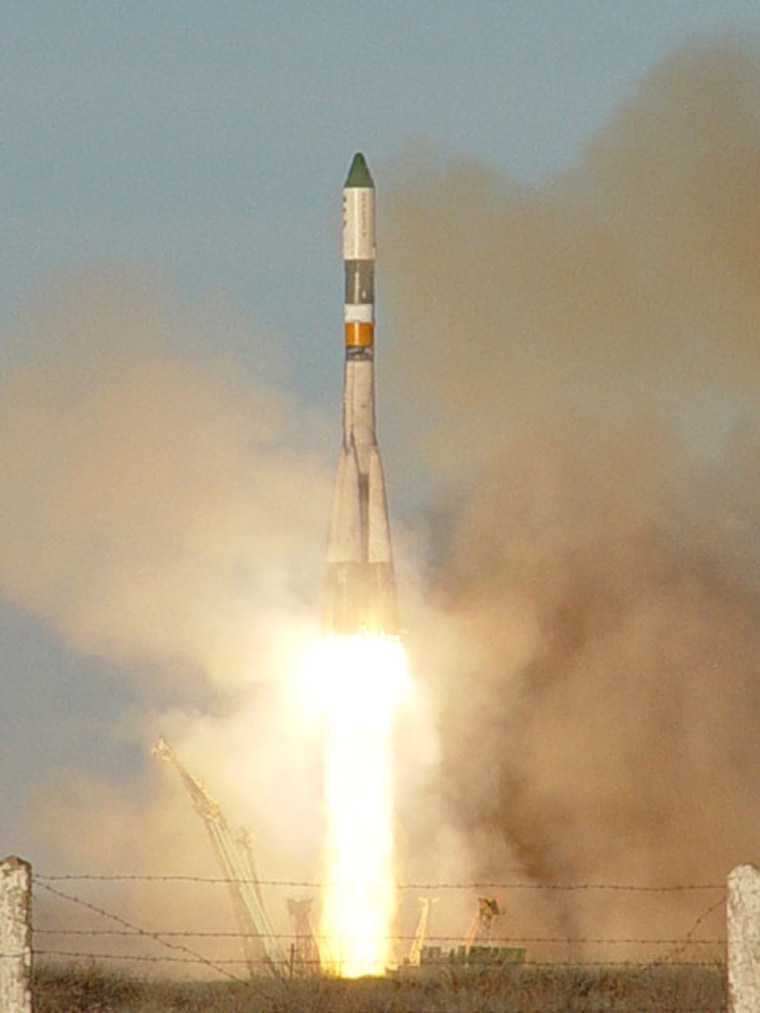A Russian cargo ship carrying supplies, material for experiments and a spare hose docked Saturday with the international space station, Russian Mission Control said.
The unmanned Progress M1-11 automatically tethered a few minutes ahead of schedule to the station’s Russian module, said Valery Lyndin, spokesman for Mission Control.
Russian Soyuz crew capsules and Progress cargo ships have remained the only link to the station since the U.S. shuttle fleet was grounded due to the loss of the shuttle Columbia during its return to Earth nearly a year ago.
Progress carried 2 tons of fuel, food, water, oxygen and other supplies into orbit, including a spare hose to replace the one that was responsible for a slow air leak aboard the station earlier this month.
U.S. astronaut Michael Foale and his crewmate Russian cosmonaut Alexander Kaleri discovered the hose was leaking Jan. 11, and removed and capped it. The air pressure aboard the orbiting outpost has since stabilized.
The hose is used to prevent a window on the space station from fogging up. It takes condensation that forms between the panes of glass and vents it into space.
The Progress is delivering personal letters to the two astronauts, who have been working in space since October, and it carries two new Russian Orlan space suits for spacewalks. Russian and European mannequins are also onboard. They will be used to study the impact of space radiation on the human body during spaceflight.
Such studies are essential for planning manned space missions to the moon and Mars like the one President Bush proposed earlier this month. Russian space officials have voiced a desire to cooperate with the United States on the planned missions.
